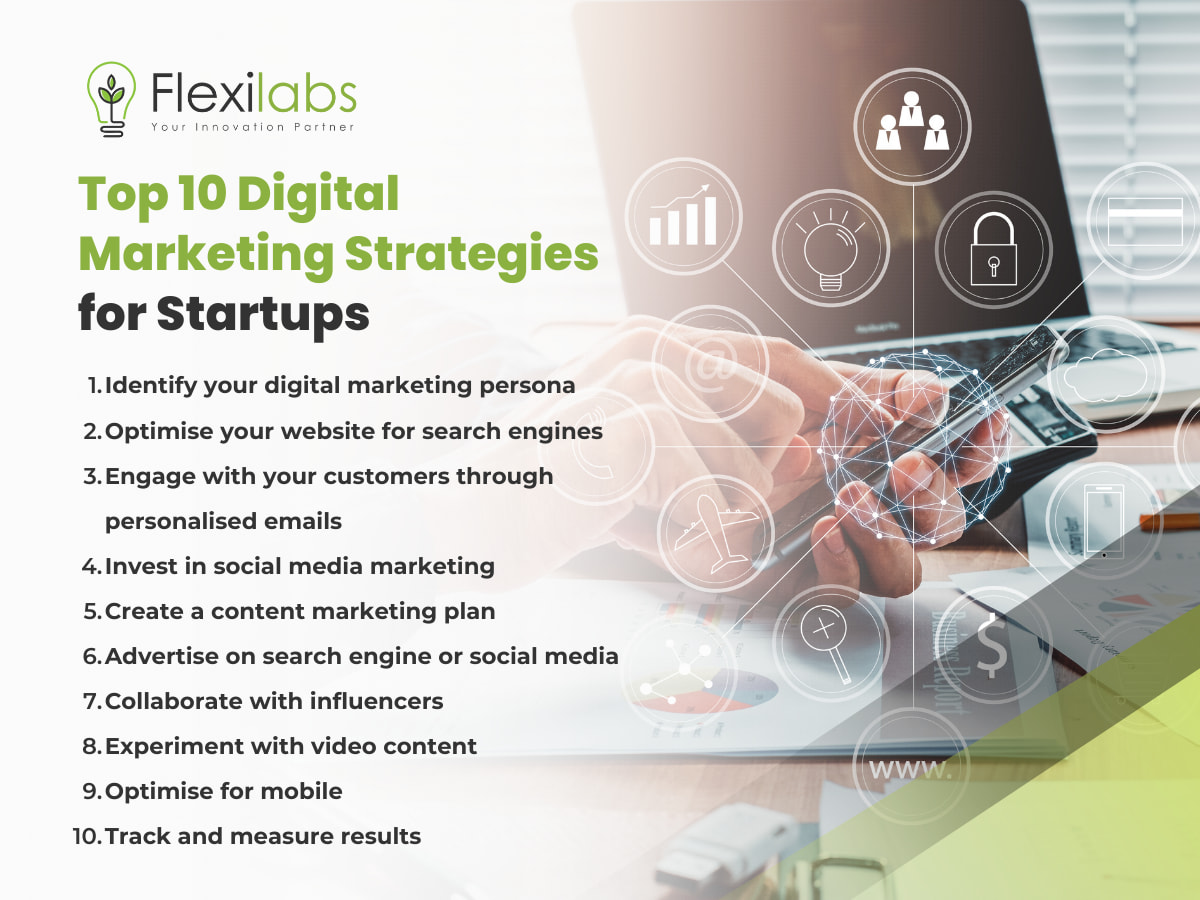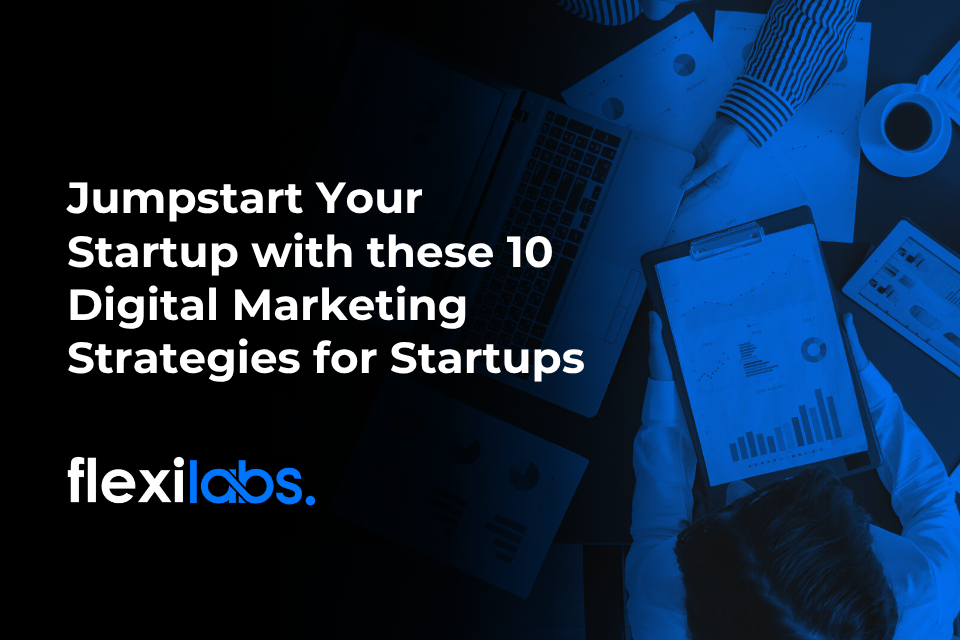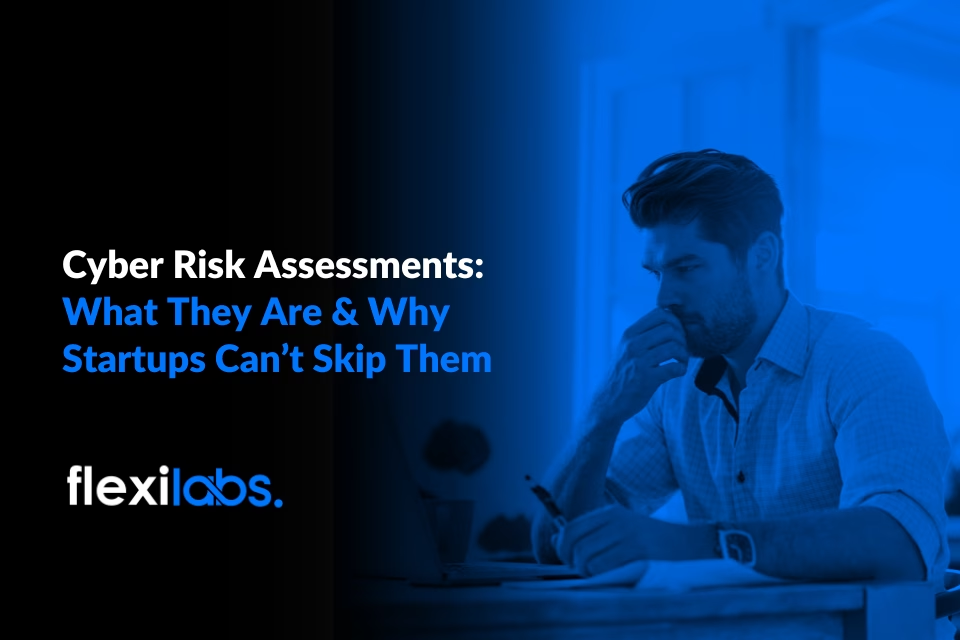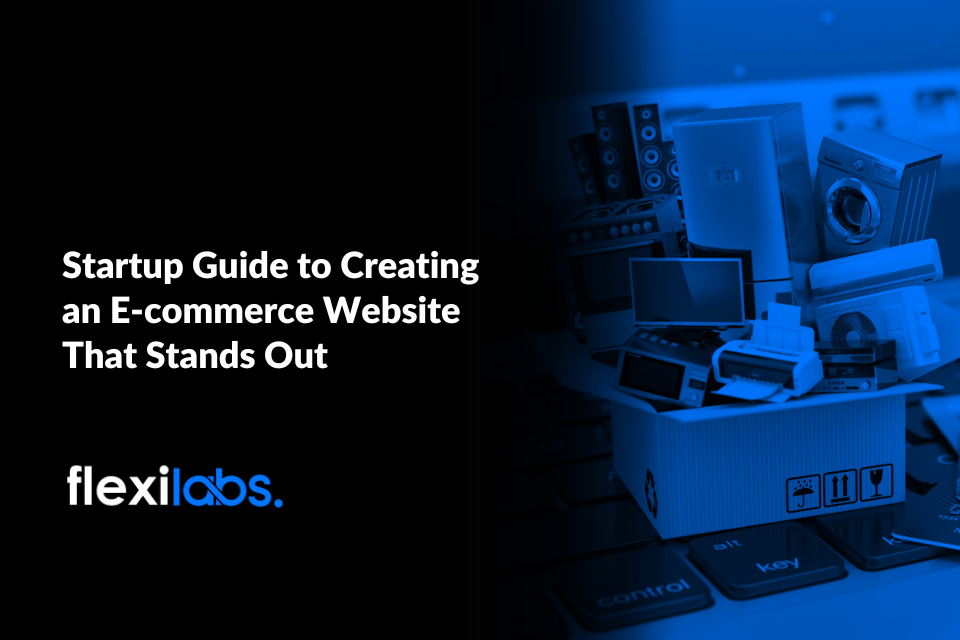As a startup founder, you may have faced unique challenges when marketing your products or services. I mean, we all know that limited budgets, lack of brand awareness, and intense competition can make it difficult for you to sell your company, let alone your products. And as a new business, it can also be challenging to establish a solid online presence and attract customers.
But did you know, with the right strategies, your startup can overcome these obstacles and maximise? How? This blog will tell you various digital marketing strategies that you can employ for your startups, maximise your limited budgets, and achieve their business goals.
What is a digital marketing strategy?
Before we dive into the strategies, let’s understand what digital marketing means.
Basically, a digital marketing strategy is a comprehensive plan that outlines how a company will use various digital channels to achieve specific business goals. It involves leveraging online marketing tactics, such as search engine optimisation (SEO), content marketing, social media marketing, and email marketing, to build brand awareness, attract potential customers, and drive business growth.
Henceforth, an excellent digital marketing strategy will definitely help you attract, engage, and delight your customers online. blush
Why do startups need a digital marketing strategy?
For years, digital marketing has been at the forefront of many small or large businesses. It has been the catalyst of the success of companies, providing them with the opportunity to increase their customer base, grow their visibility, and increase revenue.
Similarly, digital marketing can be a game-changer for startups. A well-defined digital marketing strategy serves as a roadmap for startup marketers, ensuring their marketing efforts are focused, targeted, and aligned with overall business objectives.
Consequently, having a digital marketing strategy can help a startup by:
- Reach a wide customer base online, without being limited by geography or time zones.
- Save money on marketing costs, compared to traditional advertising channels like TV or newspapers.
- Measure the results of their marketing campaigns, using tools and platforms that track metrics like views, clicks, conversions, and sales.
- Improve their brand awareness, reputation, and loyalty, by creating and sharing valuable content, engaging with their audience, and solving their problems.
What are the best digital marketing strategies for Startups?
To make the most of their limited budgets, startups must adopt digital marketing strategies that yield results. Here are ten digital marketing strategies for startups that can attract potential customers, cultivate brand awareness, and drive business growth.

Identify your digital marketing persona.
To create a successful digital marketing strategy, it is essential to build buyer personas based on thorough market research, customer insights, and demographics. Why? Well, marketing personas can help startups understand their target market better and tailor their products and services to their needs and preferences.
With that in mind, startups can create more effective and relevant marketing campaigns and content that resonate with their audience and motivate them to take action.
Optimise your website for search engines.
One of the most crucial components of digital marketing strategies for startups is search engine optimisation (SEO). SEO is optimising a website to improve its visibility in search engine results pages, ultimately driving organic traffic to the website. Through SEO, startups can increase their online presence, attract potential customers, and ultimately drive business growth.
To optimise your website for search engines, you should:
- Conduct keyword research to identify relevant keywords and phrases for your business
- Optimise website content, meta tags, and headers with target keywords for better search engine visibility
- Improve website loading speed, user experience, and mobile friendliness
- Create high-quality, valuable content that addresses customer needs and pain points
- Build a network of high-quality backlinks to improve website authority and ranking
Engage with your customers through personalised emails
Email marketing remains one of the most powerful digital marketing strategies for startups. It is one of the lowest-cost forms of marketing that can establish a direct line of communication with potential and existing customers. According to OmniSend, you can get back $36 to $40 in revenue for every dollar you spend on email marketing.
And as a startup with limited resources, this low-cost marketing can deliver personalised messages, promote their products or services, nurture customer relationships, and drive business growth.
You can use email marketing to reach customers by:
- Segment your email list based on customer preferences, behaviour, or demographics
- Craft personalised email campaigns that provide value, exclusive offers, or relevant recommendations
- Leverage email automation to send timely, targeted email campaigns based on customer actions or triggers
- Create helpful content, newsletters, or customer success stories to nurture customer relationships
- Analyse email campaign metrics such as open rates, click-through rates, and conversions to optimise your email marketing efforts.
Invest in social media marketing.
Social media marketing is a powerful strategy for startups to engage with their target audience, foster brand awareness, and drive business growth. With billions of people using social media platforms, startups have access to a vast audience they can connect with, interact with, and influence through their social media presence.
To leverage social media marketing effectively, startups must do the following:
- Identify social media channels most relevant to your target audience
- Create compelling social media content that resonates with your audience
- Engage with your followers, respond to comments, and participate in relevant conversations
- Run targeted social media advertising campaigns to reach a broader audience
- Analyse social media insights to refine your marketing strategies based on audience engagement, reach, and conversion metrics.
Create a content marketing plan.
Content marketing is one of the most influential digital marketing strategies for startups. How so? This marketing method involves creating and distributing valuable content that resonates with the audience, addresses their pain points, and provides them with helpful information.
With that, businesses attract users to convert and patronise their products and services. Moreover, content marketing helps them build their brand voice, attract potential customers, and engage with their target audience.
In fact, according to Databox, it remains one of the best marketing forms to provide the best ROI and SEO.
Thus, to incorporate content marketing in your startup, you should:
- Research your target audience to understand their preferences, needs, and pain points
- Develop a content marketing strategy aligned with your business goals
- Create and distribute valuable content that resonates with your audience, such as blog posts, videos, infographics, or eBooks.
- Distribute content across multiple channels, such as websites, social media, email marketing, and more.
- Measure content performance, track key metrics, and optimise future marketing efforts based on data-driven insights.
Advertise on search engines or social media.
Running targeted advertising campaigns is another crucial aspect of an effective digital marketing strategy. Startups can use search engines like Google or Bing or other social media advertising platforms like Facebook, Instagram, or LinkedIn ads to reach specific demographics.
This can help them promote their products or services, drive traffic to their website, and increase revenue. In fact, according to Google’s Economic Impact Study, PPC has a great ROI of 200%, as you can earn $2 for each dollar you invest in it.
With that said, try the following to have an effective ads campaign.
- Utilise search engine advertising platforms, such as Google Ads, to target potential customers based on search queries.
- Leverage social media advertising platforms, such as Facebook, Instagram, or LinkedIn Ads, to reach specific demographics.
- Create compelling ad content that aligns with your buyer personas and customer journey stages.
- Monitor ad performance, adjust campaigns, and optimise budget allocation for better results.
- Explore other online advertising opportunities, such as influencer marketing or sponsored content, to diversify your marketing efforts.
Collaborate with influencers
Influencer marketing, for startups, has proved to be an effective way of increasing brand visibility, reach, and credibility. Likewise, according to Localiq, nearly half of the users on social media trust influencers’ recommendations for brands. This is significantly essential to startups as they are still building their brand/
So, to make the most out of this strategy,
- Identify influencers who are relevant to your target audience and industry niche.
- Establish genuine relationships with influencers and collaborate on brand promotions.
- Leverage influencer marketing to increase brand visibility, reach, and credibility.
- Measure the impact of influencer collaborations on brand awareness, customer acquisition, and sales.
- Repurpose influencer-generated content to amplify your marketing efforts and gain social proof.
Experiment with video content
Video content has become an essential element in digital marketing strategies. It enables brands to deliver messages, product information, customer testimonials, and more. And with that, businesses can create content that resonates with their audiences and increase engagement. In fact, according to Wordstream, 49% of companies that use video content grow revenue faster.
Likewise, to create the perfect video content, consider:
- Create engaging video content that delivers brand messages, product information, or customer testimonials
- Utilise live video streaming to interact with your audience in real-time
- Optimise videos for search engines with relevant keywords, descriptions, and tags
- Share video content across social media platforms to maximise reach and engagement
- Analyse audience engagement with video content and refine your strategies based on performance metrics
Optimise for mobile
Today, the majority of online traffic is coming from mobile devices. According to Statista, more than half of worldwide traffic comes from mobile phones.
With that said, startups need to prioritise mobile user experience to retain visitors, increase engagement, and drive conversions. A mobile-friendly website design enables startup marketers to reach potential customers on the go, ensuring their content is easily accessible, readable, and navigable.
To optimise your website for mobile, you should:
- Ensure website design and content are responsive and mobile-friendly
- Prioritise mobile user experience, fast website loading speed, and intuitive navigation
- Optimise email campaigns for mobile devices to enhance customer engagement
- Utilise mobile marketing tactics, such as SMS marketing or mobile apps, to connect with on-the-go customers
- Test your website and marketing content across various mobile devices to ensure consistency and user-friendliness
Track and measure results
Digital marketing does not end in implementation. You must constantly track, measure, analyse, and enhance your campaign to maximise its use and effectiveness. To do so, try the following:
- Implement analytics tools, such as Google Analytics, to monitor website traffic, user behaviour, and conversion metrics
- Track email campaign performance, including open rates, click-through rates, and conversions
- Utilise social media insights to evaluate post performance, audience engagement, and reach
- Measure advertising ROI through key performance indicators, attribution models, and conversion tracking
- Analyse content marketing metrics, such as blog post views, social shares, or lead generation, to assess the impact on brand visibility and customer acquisition.
Conclusion
In conclusion, digital marketing strategies can play a crucial role in the success of startups, even with limited budgets. Through digital marketing, startups can effectively reach and engage their target audience.
However, implementing marketing campaigns is not a walk in the park. Following the above-mentioned strategies is essential to maximise their limited budgets and achieve their marketing goals for startups.
If you need assistance developing and implementing your digital marketing strategy, contact Flexilabs today!










